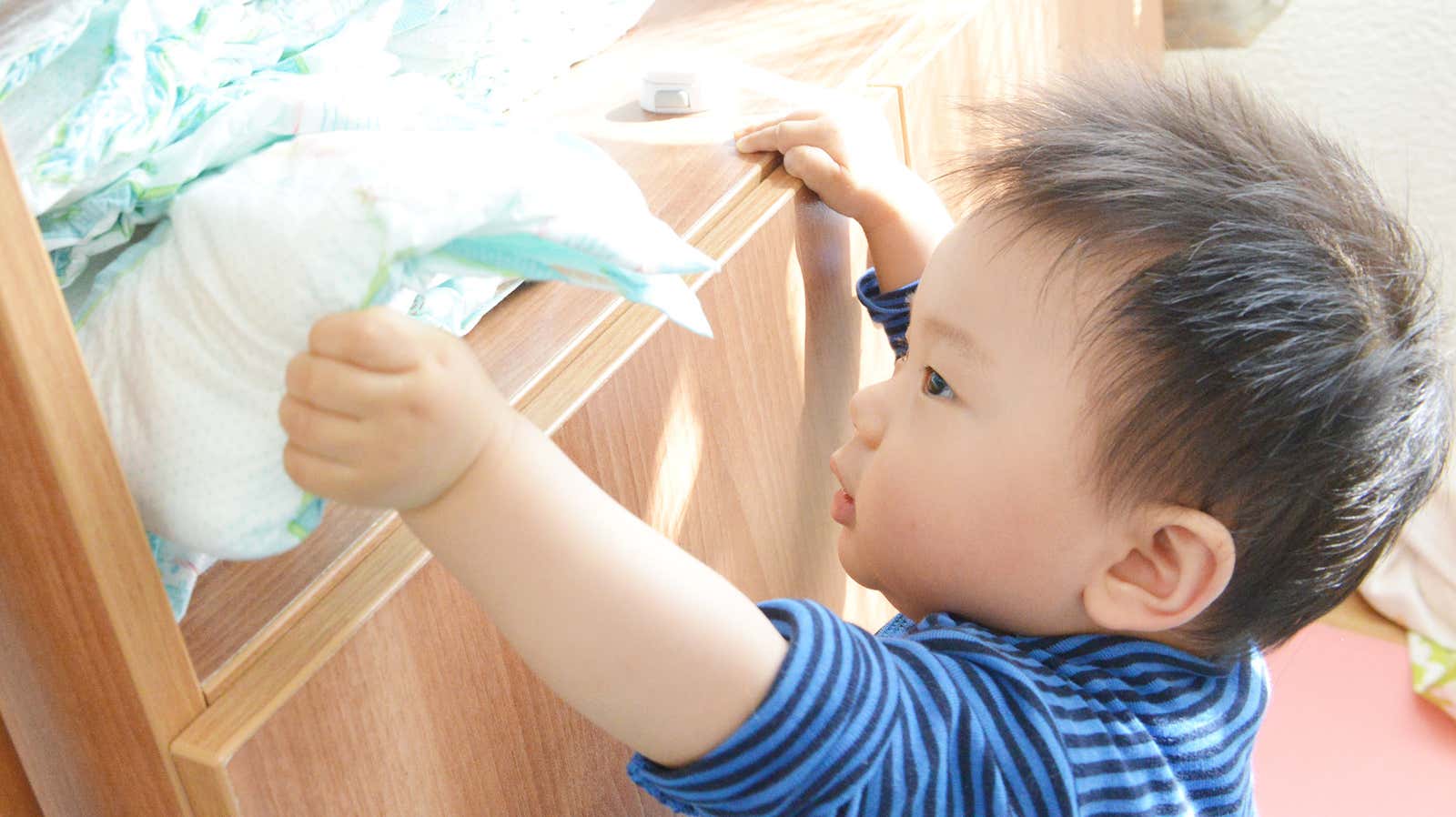How to Deal With Regressive Potty Training

You thought you were done; you would give up diapers and somehow, in just a few days, you have entered the magic word of accident-free life. But now, seemingly out of nowhere, your little one has regressed. As unpleasant and confusing as it is, regressing potty training is normal. This is usual. And, most importantly, temporarily.
But what to do now? Well, you trained them once; you will train them again. Here’s how to start (over):
First, rule out medical causes
Your child may suddenly avoid the toilet for medical reasons, such as a painful urinary tract infection or other intestinal defect. As the Very Well Family explains , constipation can be the cause of the problem:
Children with constipation may have painful stools that make them afraid to go to the potty or toilet.
If left untreated, these babies may have a delay in bowel movement for so long that they ultimately cannot tell when to go and will have a bowel movement. This is called encopresis and is often confused with not potty training.
Make an appointment with your child’s pediatrician to rule out possible medical causes of regression.
Then ask yourself: what has changed?
Perhaps your little one is just distracted and waits until the last minute to get to the bathroom. This can often explain accidental accidents. But if the regression is more persistent, the likely culprit will be something stressful in their environment or some major change in their lives. Potty mastery can be difficult for young children in the midst of life changes or strong emotions, even if they are positive.
The American Academy of Pediatrics calls these common causes of regression:
- Changes to childcare routines – for example, a new caregiver or starting a childcare or early childhood education program.
- Pregnancy of a mother or the birth of a new brother or sister
- Serious illness of a child or family member
- Recent death
- Family conflict or divorce of parents
- Upcoming or recent move to a new home
Talk to your child about how you noticed that he doesn’t use the potty much or has more accidents, and help him determine why this might be; maybe the bathroom in their new home is still too unfamiliar to them, or the pot in their new school is very noisy and intimidating. Talking about underlying stress can be helpful in finding solutions to cope with it.
Keep calm and supportive
First of all, one should never punish a child for an accident; According to the words of Healthline, it will almost certainly lead to the opposite results :
In particular, your child may not be able to control bedwetting. And punishing an accident increases the likelihood that your child will try to avoid punishment by hiding or trying not to poop or urinate at all, leading to constipation and more accidents.
Negative attention can exacerbate behavior or lead to power struggles. Instead, it’s best to demonstrate a calm and down-to-earth attitude towards accidents, no matter how upset you are. Just clean it up and move on.
And then back to basics. Ask yourself what worked well the first time; maybe they were motivated by the sticker table and you can start a new one with another fun prize they might aspire to. Remember to remind them to use the potty regularly, especially in the morning, before bed and after meals. Praise them every time they try.
Make sure your child knows that accidents are common, but you know that they will overcome them and succeed.
You can take a break if necessary.
Taking an indefinite “pause” in potty training is not ideal, but if your efforts to retrain your toddler are causing more stress and accidents continue without improvement, the AAP recommends asking your child if he wants to go back to sweatpants for a while. (However, do not force this decision on them, because being forced to do so can make them feel ashamed.)
If your child’s regression is lasting a month or more, you may have to ask yourself if she was ready for a full day of schooling in the first place. There is nothing wrong with asking you to put the pot aside for a while if it is clear that this will be a great relief for your child.
However, in many cases, the regression will only last a few days or weeks, and you will soon be back on track.